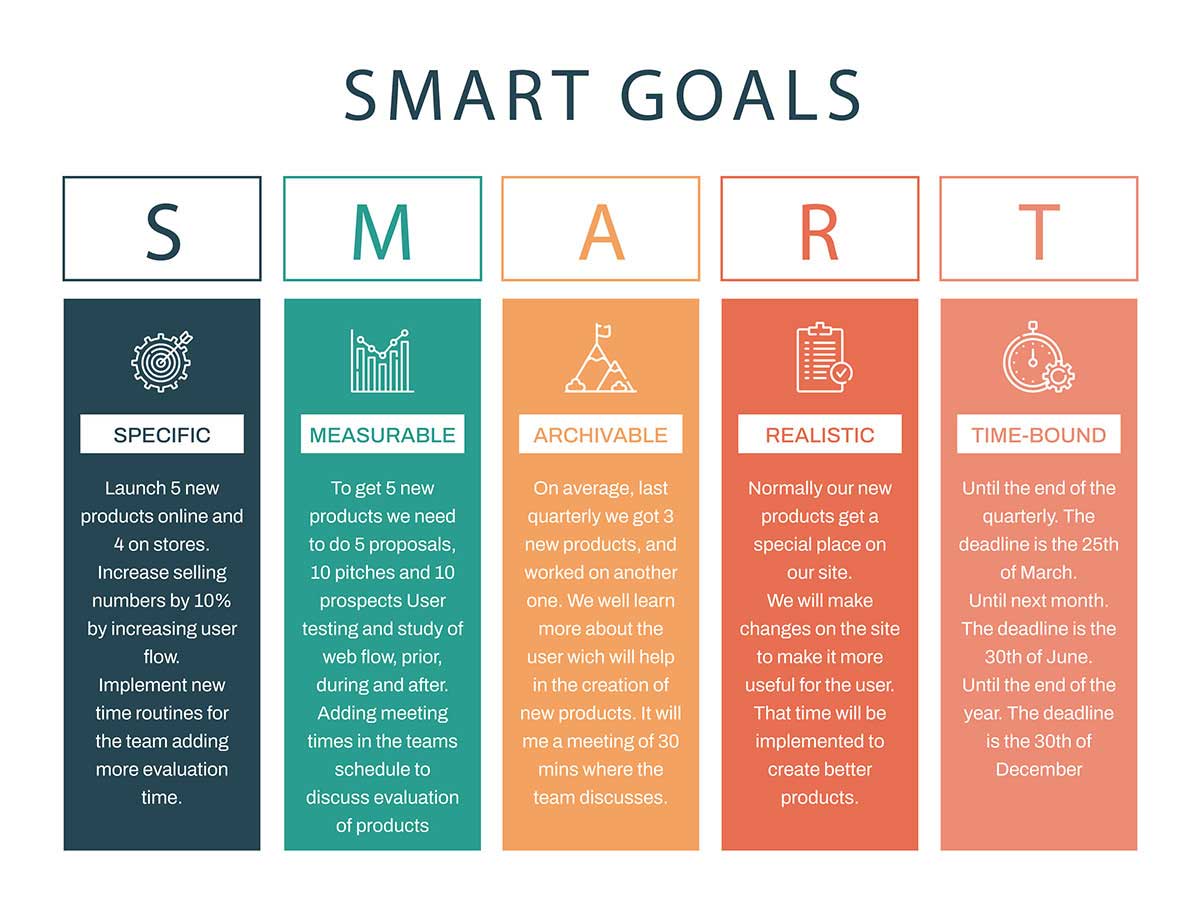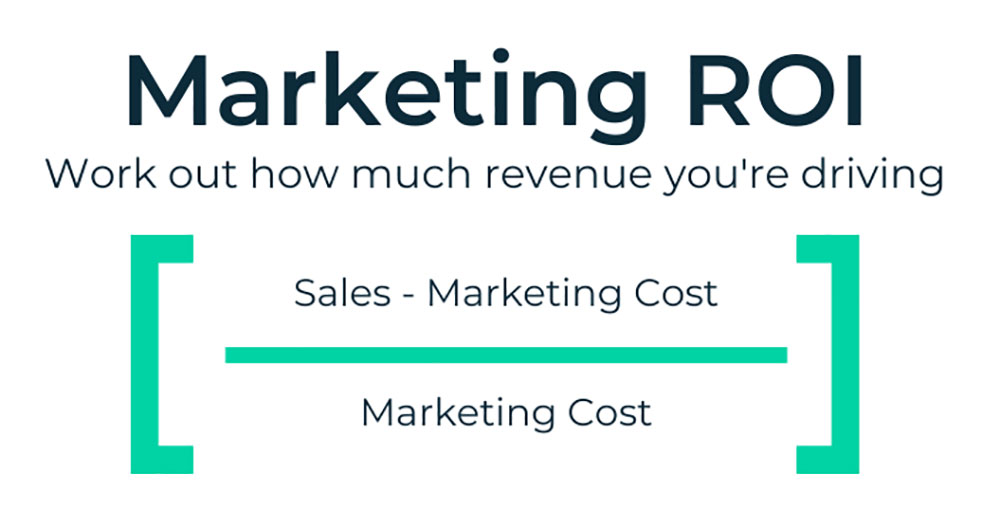How to Use Event Management to Increase Marketing ROI
Originally published: July 12, 2023 10:28:21 AM, updated: July 12, 2023 10:34:33 AM

Welcome to an exciting exploration of the art of event management and its profound impact on boosting your marketing return on investment (ROI). In a fiercely competitive business landscape, finding innovative ways to captivate your audience and leave a lasting impression is crucial.
That's where event management comes in, serving as a powerful tool to connect with your target market, enhance brand visibility, and ultimately drive your marketing efforts to new heights.
In this blog post, we'll unravel the secrets behind leveraging event management strategies effectively, allowing you to unlock the full potential of your marketing endeavors. So, fasten your seatbelts and get ready to embark on a journey toward maximizing your ROI through the magic of event management!
Set Goals: Define Your Objectives for Maximum ROI
Defining your goals and aligning them with your marketing objectives is crucial to set the stage for a successful event. Here's how you can do it:
Identify Key Marketing Objectives
Determine the core objectives you want to achieve through your event. For instance, if you aim to increase brand awareness, your objective may be to reach a specific number of attendees or generate a certain level of social media engagement.
For example, a software company organizing a user conference may set a goal of attracting 500 industry professionals and creating a buzz on social media with at least 1,000 mentions using event-specific hashtags.
Set SMART Goals

Make your goals Specific, Measurable, Achievable, Relevant, and Time-bound (SMART) to ensure clarity and traceability. This will help you gauge the success of your event and its impact on your marketing ROI. For example, increase qualified leads by 20% within three months post-event by implementing lead capture mechanisms and targeted networking opportunities.
Target Audience: Know Your Audience for Effective Event Planning
Understanding your target audience is essential for planning an event that resonates with attendees. Here are the steps to ensure effective event planning:
Conduct Market Research
Dive into market research to gather insights about your target audience's demographics, preferences, pain points, and interests. This will help you tailor your event to their needs and create a more personalized experience.
For instance, a fashion brand organizing a runway show can conduct market research to understand its target audience's age, style preferences, and shopping habits to curate a collection and atmosphere that appeals to them.
Tailor Your Event
Customize your event to align with the needs and preferences of your attendees. From content selection to speaker choices and interactive activities, every element should be designed with your target audience in mind.
For example, a fitness studio organizing a wellness retreat for busy professionals may include a mix of yoga sessions, mindfulness workshops, and healthy cooking classes to cater to their attendees' desire for relaxation and self-care.
Strategic Planning: Craft a Winning Event Marketing Strategy
Developing a comprehensive event marketing plan is crucial to maximizing reach and impact. Consider the following strategies:
Develop a Detailed Plan

Outline your event's objectives, target audience, budget, timeline, and promotional tactics. This ensures your marketing efforts are cohesive and aligned with your overall strategy.
For instance, a tech startup planning a product launch event can create a detailed plan outlining the event's purpose, target audience (e.g., tech journalists and industry influencers), budget allocation for a venue, catering and promotional activities, and a timeline for executing each task.
Leverage Various Channels and Tactics
Utilize a mix of marketing channels, both online and offline, to maximize your event's reach and impact. Leverage email marketing, social media promotion, content marketing, influencer partnerships, and traditional advertising methods to create buzz and attract attendees.
For example, a music festival can leverage social media platforms to share artist lineups, behind-the-scenes content, and exclusive ticket offers to generate excitement. They can also collaborate with influencers to amplify their reach and attract a larger audience.
Seamless Execution: Turn Plans Into Memorable Experiences
Executing your event flawlessly is vital to creating memorable experiences for your attendees. Pay attention to all logistical aspects, including venue selection, equipment setup, registration process, and attendee communication. Smooth logistics contribute to a positive event experience.
For instance, a corporate conference can ensure flawless execution by having dedicated event staff available to assist attendees with registration, provide clear signage, and coordinate sessions and networking activities.
Create Immersive and Engaging Experiences for Attendees
Incorporate interactive elements, live demonstrations, experiential activities, and networking opportunities to engage attendees and make your event stand out.
For example, an automobile company organizing a product showcase event can allow attendees to test-drive new models, offer virtual reality experiences, and host expert-led sessions to educate and entertain attendees.
Measurement and Evaluation: Assessing ROI and Refining Strategies

To measure the success of your event and optimize future efforts, focus on these aspects:
Determine the Metrics to Measure Event Success and ROI
Define key performance indicators (KPIs) based on your event objectives. This could include metrics like attendee satisfaction, lead generation, sales revenue, social media engagement, or post-event surveys.
For example, a charity organization hosting a fundraising gala may measure success through the number of funds raised, the number of new donors acquired, and the level of engagement on their social media platforms during and after the event.
Analyze Data to Gain Insights
Collect and analyze data from various sources, such as attendee surveys, social media analytics, website traffic, and sales figures. Use these insights to refine your event strategies and optimize future marketing efforts.
For instance, a technology conference can analyze attendee feedback surveys to identify areas of improvement and better understand which sessions or topics generated the highest interest and engagement.
Driving ROI Beyond the Event: Extend the Impact of Your Campaigns
To ensure a lasting impact and drive ROI beyond the event itself, focus on post-event strategies:
Leverage Post-event Marketing Opportunities
Continue engaging with attendees by sharing event highlights, follow-up emails, and exclusive content. Encourage attendees to share their experiences on social media and generate word-of-mouth buzz.

For example, a beauty brand hosting a product launch event can share professional photos and videos from the event on their social media platforms, tag attendees, and encourage them to share their personal experiences and testimonials.
Nurture Leads and Maintain Long-term Relationships
Use the event as a starting point to nurture leads and build lasting relationships with attendees. Provide valuable content, personalized communications, and exclusive offers to keep them engaged and foster brand loyalty.
For example, a software company can send post-event follow-up emails to attendees, providing additional resources, demo requests, and special offers to nurture leads and convert them into customers.
Utilizing Event Management Software: Boost Efficiency and Effectiveness
Event management software is a technological tool that empowers event planners with a wide range of features and capabilities. Let's delve into some key benefits and ways in which event management software can help you optimize your marketing ROI:
Streamlined Event Planning Process
Event management software acts as a centralized hub for all your event planning needs. Everything can be efficiently managed within a single platform, from venue selection to vendor management, task delegation, to budget tracking.
This streamlines the planning process, eliminates the need for multiple spreadsheets or manual tracking, and ensures that every aspect of your event is well-organized and on track.
Enhanced Attendee Experience
Delivering a memorable experience to your attendees is paramount for generating positive word-of-mouth and maximizing ROI. Event management software enables you to create a seamless and engaging attendee journey.
You can effortlessly set up online registration and ticketing systems, design customized event websites, and send personalized communications to keep your attendees informed and excited about the event. This level of personalization and convenience contributes to higher attendance rates and increased attendee satisfaction, ultimately translating into a higher ROI.
Data-Driven Decision Making

Event management software provides valuable insights and analytics to inform your marketing strategies. You can gain a deeper understanding of your target audience by leveraging the data collected from your event software, such as registration numbers, attendee demographics, and engagement metrics.
This data can help refine your marketing messages, personalize your outreach efforts, and optimize future event planning based on attendee preferences. Making data-driven decisions ensures your marketing efforts are focused and tailored to deliver maximum ROI.
Seamless Communication and Collaboration
Effective communication and collaboration are essential for successful event planning. Event management software simplifies these processes by enabling real-time communication and collaboration among team members, vendors, and stakeholders.
You can ensure that everyone involved in the event is aligned and working towards a common goal through features like task assignments, document sharing, and instant messaging.
This seamless communication and collaboration not only improve efficiency but also eliminate potential bottlenecks and errors that could hinder the success of your event.
Integration with Marketing Tools
To achieve a higher marketing ROI, it's essential to integrate your event management software with your existing marketing tools and systems. Most event management software platforms offer integration options with popular marketing automation tools, customer relationship management (CRM) software, and email marketing platforms.
This integration allows you to seamlessly capture leads, nurture relationships, and track the effectiveness of your marketing campaigns throughout the event lifecycle.
Integrating your marketing efforts with your event management software helps to achieve a more comprehensive and cohesive marketing strategy that drives higher ROI.
Conclusion
In the dynamic marketing landscape, event management emerges as a powerful tool to boost your marketing ROI. By strategically setting goals, understanding your target audience, crafting winning event marketing strategies, executing flawlessly, measuring success, and extending the impact beyond the event, you can create remarkable experiences that drive exceptional results.
Incorporating event management software, conducting market research, and leveraging post-event opportunities are just a few of the many tactics you can employ to maximize your ROI.
Embrace the power of event management, adapt to the changing market trends, and watch your marketing efforts soar to new heights.
Remember, the key lies in understanding your audience, delivering memorable experiences, and continuously refining your strategies to create a lasting impact and drive remarkable returns on your marketing investments.
So, let your events become catalysts for success and watch your marketing ROI flourish like never before.
Join over 130,000 SEO and Google Ads experts. We provide a community to help you engage and learn from industry experts and influencers. Join Now
What if your entire business could run itself — and your work hours got shorter?